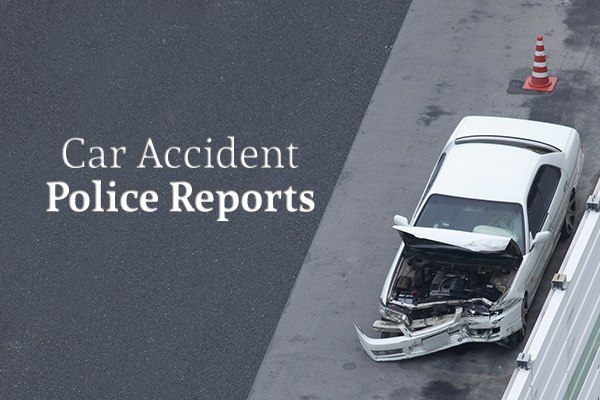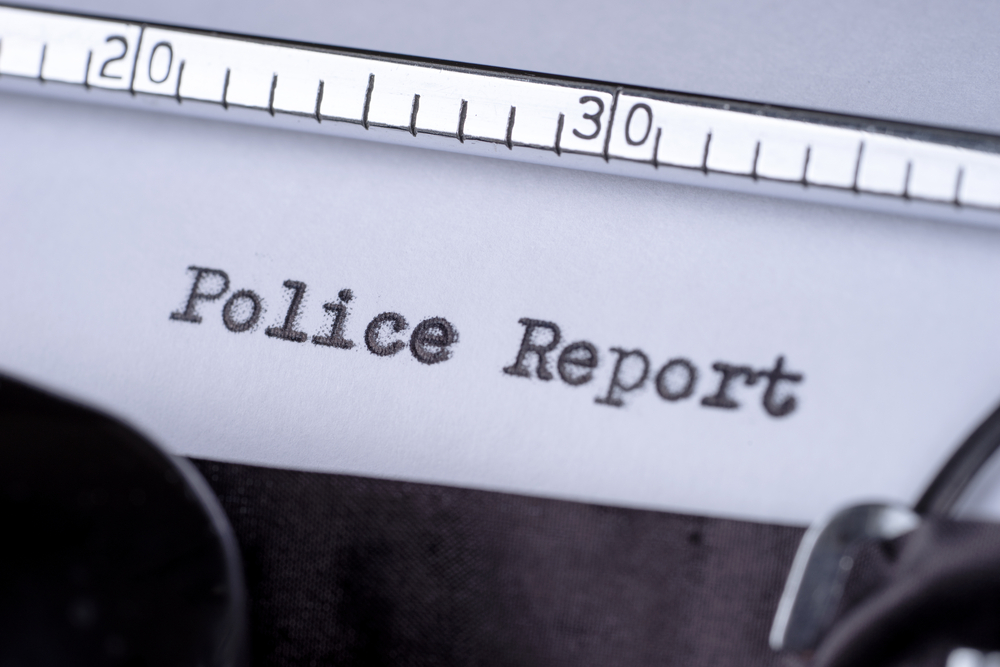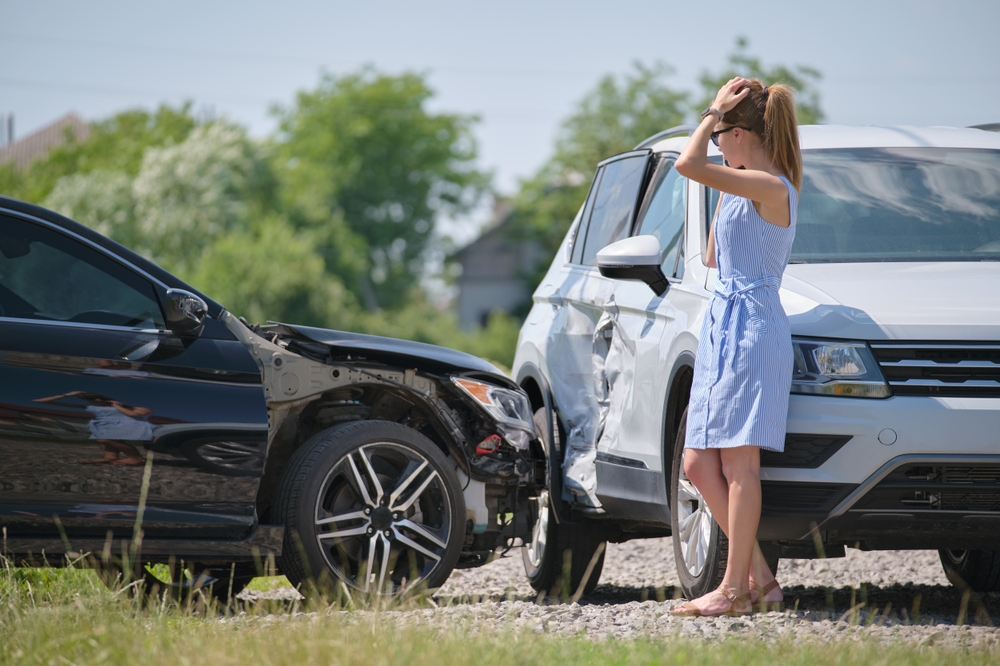
According to 2024 reportable-crash data, someone was injured on Texas roads every 2 minutes and 5 seconds. Despite statistics like these, many Texans are unaware that they may be legally required to submit a formal crash report after certain accidents. After a crash, a Texas car accident lawyer can guide you through the state’s reporting requirements.
Whether the incident occurred on a major highway in Dallas or in a commercial parking area in Arlington, Texas law imposes deadlines and procedural requirements that can affect your ability to seek compensation. A lawyer familiar with these rules can explain your obligations, handle the necessary steps, and help protect your legal interests.
From minor collisions on Cooper Street to more severe incidents near AT&T Stadium, Branch & Dhillon has assisted Arlington residents with accident-related reporting for more than two decades. To speak with an attorney who understands both Texas reporting laws and local procedures, contact the firm at (817) 533-3430.
Understanding Texas Crash Reporting in Texas
Texas law requires drivers in certain collisions to both exchange information and report the crash. Specifically, § 550.026 requires every driver to promptly notify the local police department, sheriff’s office, or the Texas Department of Public Safety when a crash results in:
- Injury or death of any person
- Apparent property damage of $1,000 or more
The reporting duty applies regardless of fault and covers incidents on public roads, highways, and in qualifying situations on private property.
Many drivers underestimate how quickly the $1,000 threshold is reached. Even a minor fender-bender can exceed that amount given today’s repair and parts costs.
In these situations, thorough documentation such as photographs, witness statements, and detailed notes is critical. This evidence supports insurance claims and helps preserve your legal position if the crash leads to litigation.
The CR-2 vs. CR-3: What Matters and What Does Not
For decades, Texas used two crash reporting forms:
- CR-2 “Blue Form”: a driver-completed report for accidents not investigated by police
- CR-3 Peace Officer’s Crash Report: an official report prepared by a law enforcement officer after an investigation
As of September 1, 2017, under policy changes implementing Texas Transportation Code §§ 550.062–550.065, Texas no longer accepts or stores CR-2 forms. They cannot be submitted to TxDOT, and filling one out does not meet your legal obligation under § 550.026 to report qualifying crashes to police.
If police do not investigate the scene, you must still contact the appropriate agency promptly when the statutory thresholds are met. In 2019, TxDOT destroyed all retained CR-2 forms. They no longer have value for state agencies, insurers, or the courts.
Some officers still hand out CR-2s instead of creating an official report for incidents they consider minor. If you receive one, you may keep it for your personal records, but it functions only as an unofficial, self-reported statement.
The CR-3 Peace Officer’s Crash Report is the only official report recognized by TxDOT. It contains officer observations, contributing factor assessments, and any witness statements. Insurance carriers and courts often rely on the CR-3 when determining liability and damages.
When Police Must File and the 10-Day Rule
Texas law requires officers to investigate and prepare a CR-3 when any of the following apply:
- Injury requiring medical treatment
- Fatality, regardless of when death occurs
- Suspected intoxication or impairment
- Driver leaves without providing information
- Crash blocks traffic or creates a safety hazard
- Damage to government vehicles or property
If a crash causes injury, death, or likely property damage of $1,000 or more, drivers must notify local law enforcement right away. The 10-day deadline in Texas law applies only to the investigating officer submitting the official CR-3 report to TxDOT, not to the driver.
If police do not respond or decline to investigate despite qualifying circumstances, your attorney can request a supplemental report, help you file a complaint if an investigation was improperly refused, and guide you in compiling your own evidence so a report can be created later if needed.
Post-Accident Steps with a Texas Car Accident Attorney

Once you leave the scene, focus on documenting the incident to support your insurance claim and any legal action your attorney may pursue.
Begin by organizing the photographs, notes, and contact information you collected. Include images that show the vehicle damage, traffic signals, road conditions, and any contributing factors such as construction or weather.
Accessing and Reviewing the CR-3 Report
If police investigate your accident, you or your attorney can request the CR-3 from TxDOT after the officer has filed it. Reviewing this report promptly allows you to address errors or missing details that could affect your claim. Processing times may vary, but the 10-day submission deadline for officers means the CR-3 is often available soon after the crash.
When No Police Investigation Occurs
If officers did not investigate, there is no official state crash form to submit because Texas no longer requires the CR-2. However, many insurance companies still request written accident documentation, and some local agencies in the Arlington area maintain their own accident report forms. A Texas car accident attorney can help you organize this information, prepare statements that avoid admitting fault, and use the evidence to support insurance claims or pursue further legal action.
How a Texas Car Accident Attorney Handles Police Reports
Obtaining Official CR-3 Crash Reports in Texas
Accessing a CR-3 Peace Officer’s Crash Report in Texas requires navigating TxDOT’s request process and meeting eligibility requirements that restrict access to those directly involved in the collision, their authorized representatives, insurance providers, and attorneys.
The process includes fees and can be delayed if the correct procedures are not followed. A Texas car accident attorney can manage this process efficiently by submitting the proper forms, requesting records from agencies in Arlington and Tarrant County, and interpreting the abbreviations and numeric codes officers use to record details in the CR-3.
Correcting Errors in Police Reports
Although police reports carry significant influence in both insurance claims and legal proceedings, they are not always free from error. Officers often reconstruct accidents using limited information, particularly when they arrive after vehicles have been moved or witnesses have left. This can lead to reports that misstate what happened or omit important contributing factors.
A Texas car accident attorney reviews the report in detail, identifying inconsistencies or missing facts, and takes steps to address these issues by submitting additional evidence, obtaining witness statements, or requesting amendments when the available facts support a different account.
Understanding Texas Crash Reporting
Insurance adjusters frequently rely on the contents of a police report to guide their settlement decisions, sometimes using the findings to argue that fault was shared or to question the severity of injuries. A Texas car accident attorney can translate the report’s technical language into clear, persuasive arguments, highlight evidence that supports your position, and address any conclusions that lack a factual basis.
By focusing on the report elements that carry legal weight and countering those that are speculative, your attorney strengthens your claim for fair compensation in Arlington and across North Texas.
Common Reporting Mistakes After Texas Car Accidents

Avoiding Fault Admissions in Accident Statements
In Texas’s modified comparative fault system, even casual remarks can influence how much compensation you may receive. Insurance companies often highlight statements such as “I didn’t see you” or “I’m sorry” in police reports and use them to argue that you share responsibility for the accident, even when the other driver was clearly at fault.
When speaking at the scene, focus on stating only what you observed without offering personal interpretations or accepting blame. Investigators will determine fault based on the evidence, and an attorney can guide your statements so you do not unintentionally damage your case.
Medical Treatment Delays Impact Texas Accident Claims
After a collision, many people underestimate their injuries and decide to skip immediate medical care. This can leave gaps in your records that insurers may use to claim your injuries are unrelated to the accident. Some conditions, such as traumatic brain injuries or internal damage, may not cause symptoms right away but can worsen without prompt diagnosis and treatment.
Seeking medical attention immediately after an accident creates records that connect your injuries directly to the event, leaving less room for insurers to question your claim. Even seemingly minor incidents deserve a medical evaluation to rule out hidden harm, especially since untreated injuries can reduce the compensation you may later receive for medical expenses or pain and suffering damages.
Insurance Company Tactics Without Attorney Protection
Insurance representatives often contact accident victims soon after a collision, sometimes before police reports are filed or medical care is received. Recorded statements can be especially damaging, as they may contain phrases that are later taken out of context.
Speaking with a qualified Texas car accident attorney before engaging with insurance adjusters can help you avoid these pitfalls. Your attorney can manage communications and protect you from strategies designed to weaken your claim.
FAQ for Texas Car Accident Attorney
Texas law requires drivers to exchange information after an accident, and refusal can result in a Class B misdemeanor. If this happens, record their license plate, vehicle description, and any other identifying details, then call the police so officers can address the violation.
Your attorney may obtain the insurance information through DMV records or legal discovery. If the driver is truly uninsured, your uninsured motorist coverage may apply, though refusals often indicate they have coverage they are trying to conceal.
While Texas law does not mandate police reports for every insurance claim, having one can greatly strengthen your case. Many insurers request them during investigations, and some policies require them for claims involving injuries or significant damage. Without official documentation, your claim may be delayed, reduced, or decided based on conflicting accounts, with insurers often favoring their own policyholder.
TxDOT typically charges $6 to $8 for standard crash reports, with higher fees for expedited service, certified copies, or special handling. Many Texas car accident attorneys obtain these reports for their clients, saving time and effort. The cost is minimal compared to the report’s value in supporting your claim.
Delayed injury discovery is common after car accidents, as adrenaline and shock can mask pain. If you reported no injuries initially, you may need to provide updated information to police and insurers.
Seek medical care as soon as symptoms appear, inform providers about the accident, and document how your condition develops. Ask medical professionals to explain why injuries may not be immediately apparent. Your attorney can help update records and respond to insurer claims that delayed symptoms are unrelated.
Accidents on private property, such as parking lots or private roads, must still be reported if they meet Texas damage or injury thresholds. Although some officers say they do not investigate private property crashes, state law does not exempt them from reporting requirements.
Property owners may also have duties to report incidents or liability for unsafe conditions that contributed to the accident. A Texas car accident attorney can identify all applicable reporting rules and potential responsible parties.
Protect Your Rights After a Texas Car Accident

The hours and days following your accident determine whether you recover fair compensation or struggle with inadequate insurance offers. Every statement you make, document you sign, and deadline you face affects your claim’s outcome. Texas accident reporting requirements represent just one piece of a complex legal puzzle that includes insurance negotiations, medical documentation, and potential litigation.
Branch & Dhillon’s Texas car accident attorneys bring decades of experience handling every kind of personal injury lawsuits, from minor collisions to catastrophic crashes throughout Arlington and Tarrant County. They understand local procedures, know which officers properly investigate accidents, and fight insurance companies that try to minimize your injuries based on reporting technicalities.
Call Branch & Dhillon at (817) 533-3430 immediately after your accident for guidance on proper reporting procedures and protection of your legal rights throughout the claims process.

